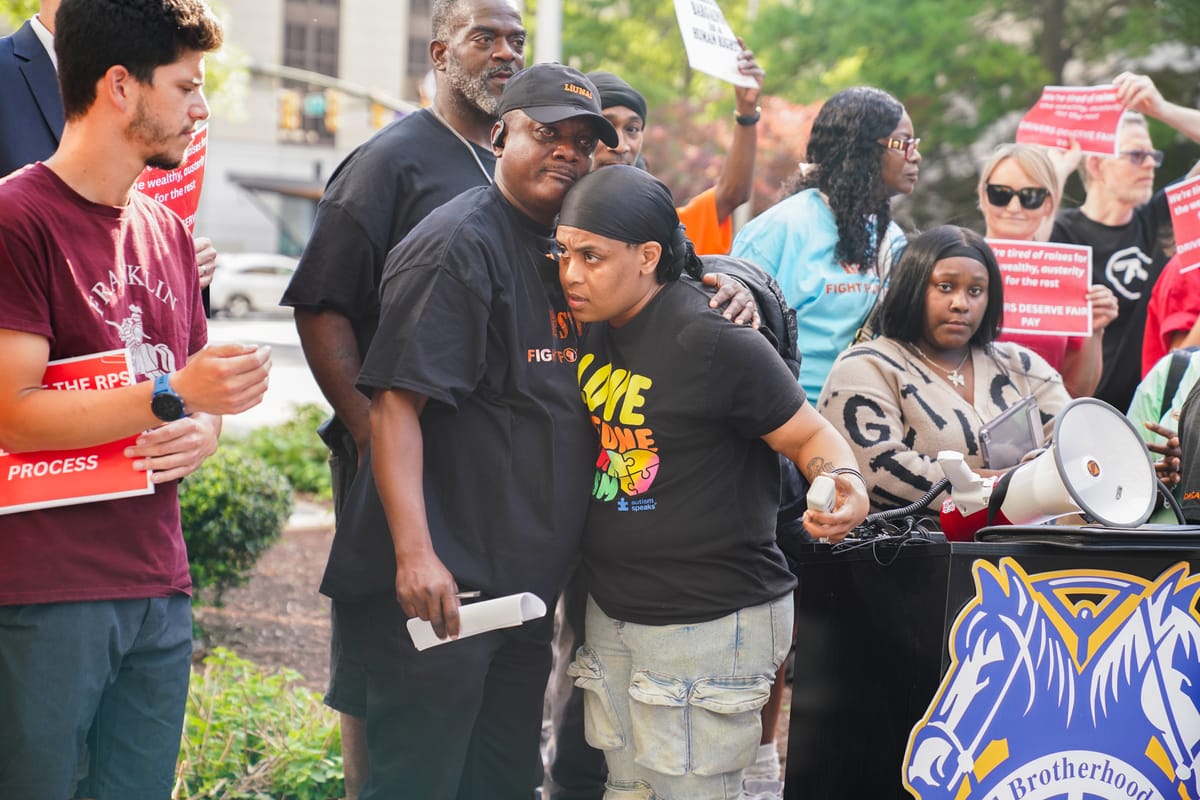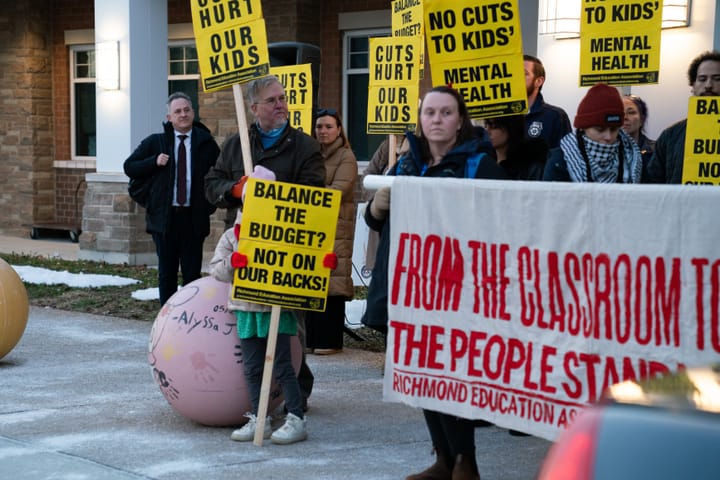Richmond School Board discusses eliminating vacant positions to make budget work

The Richmond School Board received a revised budget from Superintendent Jason Kamras, and expressed concerns about reductions recommended by the superintendent as a result of the city’s final funding decisions.
Mayor Danny Avula’s final budget proposal, which is expected to be at a City Council meeting Monday night, provides $9.6 million in additional funding on top of last year’s $221 million contribution for city schools. That is less than the $30.8 million extra that the division requested from the city.
The operating budget is now running on an increase of $14.6 million, including the addition of some funding increases as well.
As a result of collective bargaining agreements, the district will be responsible for $16.5 million in increased salary costs next year. That means the $14.6 million in new funding won’t cover last year’s budget, necessitating cuts.
“It is going to be a leaner year for us,” Kamras said Monday night.
One major – and the highest – reduction that board members expressed concerns about included the elimination of about 30 vacant positions that Kamras said have been open for over six months. He said these vacancies, which total to about $3 million in salaries, are in the division’s central office and some schools, and he made sure that their removal would make “a very small impact” in the schools.
Board Chair Shavonda Fernandez (9th District) said she was specifically concerned about schools that are hard to staff and wanted to understand how the ultimate elimination of those roles would affect those schools.
Katie Ricard (2nd District) asked if department leaders and principals are aware of the positions that would be eliminated. The superintendent said that not everyone knew about the positions, but will be working within the next few weeks to ensure that everyone is aware and on board.
Kamras plans to bring the list of vacant positions to the board for further discussion.
Wesley Hedgepeth (4th District) asked if the division can make all these reductions with the new state accreditation standards, describing the situation as “bleak.”
“It’s upsetting to see that we’re going to eliminate so many positions,” he said.
Board members also discussed the elimination of the board’s vacant junior auditor position, with a salary of $125,000, as well as reduced funding for the board’s professional development. Under Kamras’ revised budget, professional development for the school board would be reduced from $25,000 to $10,000. Stephanie Rizzi (5th District) said that cutting both items “disturbs” her considering how small the school board’s budget is.
“To cut things that are in support of the people who are the ones here making some of the most vital decisions for our district is a great concern of mine,” she said.
Other potential cuts made included reductions to maintenance, contracts and supplies for the operations, academic, wellness, talent and engagements offices, the division’s early retirement incentive program contribution and the superintendent’s reserved funding for contingencies.
Ali Faruk (3rd District) recommended that the board, especially for the new members, receive a more robust training on the budget to better understand how members can track spending, savings and learn terminology.
The budget still contains funding for collective bargaining agreements with the Richmond Education Association, the union representing RPS employees, as well as the hiring of 55 multilingual learner teachers, which is required by the state.
Matthew Percival (1st District) expressed concerns about whether or not the division can hire that many multilingual learner teachers before the end of the year.
“Can you help me sleep better at night with my concern?” he asked Kamras.
Fernandez also asked what the division’s marketing strategy is for hiring the teachers.
Kamras couldn’t guarantee that the division would fill all seats by the end of the year and would need to confirm if the state would give RPS a grace period or if they would have to return the money to the state if unable to. He expressed faith in Dr. Jennifer Blackwell – the director of multilingual learner services at RPS – and followed up by saying that there was a bilingual job fair at River City Middle School in April.
The city also provides $2.5 million in funding for major facility expenses. The proposed projects mainly include fire safety and plumbing for some elementary schools, as well as a roof replacement at Richmond Community High School.
The division has also found other avenues for funding, including a historic tax credit revenue from the William Fox Elementary School rebuild in fiscal year 2026, which brings the division a one time amount of $3 million.
In addition, a majority of the school board voted to extend Kamras’ contract until 2029, with Shonda Harris-Muhammed (6th District) in sole opposition.
The board is expected to vote on a finalized budget in June.
Bus drivers lobby at meeting
Before the meeting, three unions representing RPS employees – LiUNA Local 804, Richmond Education Association and Teamsters Local 322 – held a press conference outside of City Hall to express frustration with Kamras and solidarity with the five bus drivers who were fired earlier this month for what the division says was an unlawful strike to speak at an April school board meeting.
“I will be back because myself as well as the five drivers that were involved in it, did not do anything wrong,” said Kimya Williams, one of the drivers the division fired. “We continue to speak where we’re invited to and we attend the school board meeting like we do every month to address the issues drivers face.”
Dwaun Williams, a mother of an autistic son attending RPS, said Sonny Randolph’s absence has affected her son. Randolph, a recently fired bus driver and immigrant from Ghana, picks up and drops off special education students. Williams said that her son has been vocal about Randolph’s disappearance, despite him being nonverbal.
“They have a set schedule,” Williams said, referring to autistic children. “And everything has to stay the same. And for him to not see Mr. Sonny in the morning – it really takes a toll on my son.”
Public comment was also filled with statements from other RPS employees, students and family members supporting the drivers and reinstating their positions.






